By Lek Perviz
Part nine
THE ODYSSEY OF INNOCENCE
To my brother Valentin, who for
47 years straight, endured the ideological storms
of communism, moreover separated from his wife,
a true Odyssey in the twentieth century.
Memorie.al / When you enter Skuraj and cross the Urdhaza stream, the mountain ascent begins, on the hill called of the Lekbibajs. You pass in a row the three mills known as Gjin Pjetri’s, which are built one after the other. You also pass Ndrec Pjetri’s two-story tower, Gjin’s younger brother, and then you come across a rocky ledge on which stands a complex of three stone buildings, the historic towers known as the towers of Gjin Pjetër Pervizi of Skuraj, leader of the Kurbin uprising. These buildings dominate the entire valley, which is formed by the confluence of the Mat and Fan rivers (a tributary of the Mat), up to Milot. Almost a fortress that protects and defends the area from the expeditions of foreign invading armies that could penetrate that gorge, until they encountered the wall of the Skuraj Mountains, where the towers we mentioned were built.
The Beauty and the Monster
Another issue that arose in these circumstances was the presence of his Italian wife in Albania. Her presence, according to the opinion of the prisoners and Shkodra society, complicated his situation. There were other Albanians married to Italians, but in Gori’s case, it weighed and had a bad influence because she was the wife of the son of Prenk Pervizi. For that reason, Valentin would not be released, under false pretexts; they simply couldn’t stand her presence in Albania. Valentin was held hostage, not only as the son of Prenk Pervizi but also because of his wife.
Even more so, because she stood out everywhere. Not only because she was beautiful, but also because of her dress, her manners, and all the expressions of a high culture and education, expressions could that not be accepted by the ignorant communist class, which was dominating the country. She embodied that civilized, capitalist, and bourgeois world that the communists had opposed, as an old world that had to be torn down.
Due to all these circumstances, and advised by some friends, she decided to go straight to Mehmet Shehu, who had arrived in Shkodra. When she presented herself to the officer on duty, the guard who knew a little Italian told her to wait and went to inform Mehmet that an Italian woman wanted to meet him. Mehmet agreed, and Gori found herself in his office, where he was sitting behind a large desk. As in all the offices of the rulers, on the wall behind Mehmet, there was a photograph of Stalin in a beautiful frame, dressed as a general, who seemed to be taking part in that meeting, with an ironic, even sarcastic smile. What did that lady want there?!
When Gori entered the office of the number two man of the regime, he didn’t move from the armchair where he was buried. He knew Italian well because he had studied at the military school in Naples. After casting a glance at that beautiful woman, who stood before him, he politely invited her to sit down and asked her what had prompted her to come there.
– “What’s the matter, madam, if I may answer you?”
-“Forgive me for the trouble, Mr. General. As you can see, I am an Italian, married to an Albanian officer. It hasn’t been two months since we came to Shkodra from Italy. I followed my husband with whom I was bound, for better or for worse. He himself has not lived in Albania, because all his schooling until he became an officer was completed in Italy, and he was also assigned to serve there.
Since he escaped from a German camp and was at risk, we decided to come to Albania, to find salvation and live normally. As soon as we found a room to stay in temporarily, the great misfortune happened and my husband was arrested, completely innocent, without any reason given. Now he is in prison. This is a great injustice, and I have come to beg you to release my innocent husband.”
Mehmet Shehu had listened carefully to the words of that beautiful and elegant lady. He guessed that something unfair had been done to her, but, under the conditions of the state of siege, injustices could also happen.
– “Is that so…?! Excuse me, Madam, what is your husband’s name?” The question was direct.
– “Valentin” – Gori replied with a thin voice.
– “Valentin”? Which Valentin?!” – Mehmet had added with curiosity. As if he had heard this name.
-“Valentin Pervizi” – Gori had pronounced with great anxiety.
-“Valentin Pervizi?! Could he be the son of General Prenk Pervizi?!” Mehmet Shehu’s face darkened and he leaned back in his armchair waiting for the answer, full of curiosity.
-“As you order, Mr. General, his eldest son, whom I married.”
-“Dear Madam, instead of thanking us that we have not executed him, you come and ask us for his release?!” – Mehmet had said, with an arrogant expression.
-“How can you have the audacity to answer me like this?! I did not expect such an expression from you! I am asking for justice for my husband, who is completely innocent, and you ask me to thank you for not killing him! This is unbearable!” As she spoke, tears of despair ran down her face.
-“Do you perhaps think that you will make us sentimental with your tears?!” These words sounded very cynical. Gori could not bear it and had spoken with great anger:
-“In a way, I had expected such a reception, worthy of a heartless person like you.”
As soon as she said those words, she got up and left, slamming the door, while Mehmet Shehu laughed from behind. Stalin on the wall seemed to be enjoying that scene where the arrogance of an uneducated, soulless, and criminal communist stood out. Truly a worthy son of his.
This event became known and impressed people with Mehmet Shehu’s brutal behavior towards that unfortunate woman. But on the other hand, Mehmet’s answer expressed a truth, because Valentin could have been executed by the partisans, without asking anyone. Without Mehmet he even knows it. Someone explained it to Gori, but she didn’t want to hear the name of that criminal.
After finding out how the meeting went, Valentin was convinced that Gori had to be repatriated as soon as possible, for a while. Perhaps some improvement in the situation would come. Otherwise, they would never release him from prison. Or they would have locked her up in an internment camp, together with his grandmother and mother. He didn’t tell her anything, because he knew it would cause her great pain. He thought of waiting for a convenient opportunity. To give it time.
She had also been advised by some family friends that her temporary departure was for the good of both parties. Then she was at risk of being interned as a member of the Prenk Pervizi family, and who knows what her fate would be under those conditions, where she would end up locked in some concentration camp, without hope of salvation, where her mother-in-law and Prenk Pervizi’s mother were also locked up.
Before the rulers thought of it, she should do whatever she could and be repatriated with the other Italians who were returning to Italy, through the “Circolo Garibaldi” in Tirana, which was in charge of that matter and enjoyed the trust of the Albanian government. Her stay in Italy would certainly be temporary, because the situation in Albania would also normalize and conditions would be created for her to be reunited with Valentin. But she didn’t have the courage to tell Valentin. It seemed to her like an unpleasant, insulting, and low gesture. Their love seemed like something futile and nonexistent.
A Mysterious Character
From time to time, a strange man would visit the prison, dressed as a soldier, without ranks, with a medium, strong body and a rough face. When the prison doors opened and he entered, everyone would scatter and each one would go and lie down in their place, in silence and keeping their eyes in a daze. But their ears were alert, because that man did not enter the prison without a purpose.
Usually, he would take a prisoner with him, just as a butcher does with lambs to slaughter them. He visited all the cells. He would stop at the door, not speak, while looking at the convicts one by one. He knew very well which cell the unfortunate person he was going to devour was in. That’s how he would leave with him, he first and the prisoner behind, whom they would lock in an isolated dungeon. The guards and other soldiers, when he passed by, would clear the way for him and salute him, while he did not deign to return the salute and passed by without opening his mouth. This strange man terrified the prisoners. Not only did they not know his name, but perhaps the guards didn’t either. He visited not only Valentin’s prison but also the old one. Later they found out his name, but they never found out what his duty was…!
Late at night, after 10:00 PM, when everyone was in bed, the screams of the poor man who had been locked in the dungeon we mentioned that afternoon would be heard. That mysterious man, named Llambi, would vent his anger on that unfortunate soul, constantly hitting him with a gnarled stick and with fists and kicks, until he fainted. Then he would kick him out, all the way to the cell door. This scene was repeated every time he took a prisoner. No one knew or understood the reason or cause for those tortures on innocent people. Meanwhile, the time for the beginning of the special trials was approaching.
The hundreds of people who filled the prisons were in anxiety, because no one knew which category would be included, and they had no idea how things would go and what sentence they would be given. Although we have said it, it is worth repeating, that the sentences were pre-programmed, in the office of the head of the City’s Internal Branch, in cooperation with the investigating officers, according to the order that came to them from “above.” Therefore, the chairman of the court and the prosecutor would receive the documents where the sentences of those who would be tried were noted. Not to mention the other members, who were just puppets?
The prisoners had already passed a trial in the dungeons, where they had been tormented with all kinds of tortures, pressures, and most satanic methods, for which the Security officers were masters. All this was to force the prisoners to sign the document, which the investigating officer had compiled at his will and according to the instructions he had received from his superiors. Those who would not accept to sign a false document in any way would continue to be tortured with the most brutal methods, but without success, and as a result, the document remained blank, without the signature of the prisoner who was sentenced more severely than he should have been.
Of course, in most cases, it didn’t matter if the document was signed or blank, because the sentencing decisions were made in advance and the trial was nothing more than a theatrical farce. Valentin was following these matters and was surprised that he had not gone through the tortures of his friends. But according to his friends in prison, the letter he had written and his wife’s meeting with Mehmet Shehu, despite his criminal soul, had influenced them to leave him alone, without giving a reason, until a later decision. Therefore, by staying there, he waited and saw different prisoners come and go, and remained as a true witness of many sad events, and experienced the death of many prisoners under the bullets of the execution squads. Or of those who died in the hands of the executioners, from the animalistic tortures.
Another day, they brought into his room a former officer from a well-known Shkodra family, named Halit Kazazi. They had captured him as a fugitive in the mountains and his future fate seemed dark.
He said it himself. Before he was brought there, a true criminal had interrogated and tortured him. Now he was waiting to be executed. He talked and discussed with Valentin, because he told him that their families were connected by friendship, and he, as an officer, had known and served with Prenk Pervizi. Not even a week passed and they came and took him and executed him together with two others, whom Valentin did not know.
At the beginning of 1945, they were informed that the Special Trials had begun their work, throughout the country, including in Shkodra. The “Rozafat” cinema was chosen as the place where the trial would be held. It was announced that all the court sessions would also be broadcast with loudspeakers.
Meanwhile, the command had allowed the main newspapers to be brought into the prison, where information about the special trials was given. In the Special Trial of Tirana alone, 17 people were executed, among them people Valentin had known, such as Generals Aqif Permeti and Gustav Mirdashi, Colonels Tahsim Bishqemi and Daut Çarçani. Prime Ministers, ministers, high-ranking officials, well-known and respected names of the Albanian World, such as; Maliq Bushati, Terenc Toçi, Bahri Omari (Enver’s brother-in-law), etc.
On the one hand, the prisoners welcomed it with pleasure, because it would give a solution to that situation. Because none of them was or felt guilty of any political crime, and they thought that with the trial, they could show that they were innocent. But on the other hand, thinking about what communism was, and the Special Trial of Tirana was showing it, they could only expect drastic measures. In any case, it was better this way, to end it once and for all and not to stay in endless anticipation. That endless waiting was a real torture, where the unfortunate prisoners lived in constant anxiety, lest their name be called to end up at the sand of the Kir, or behind a wall of the neighborhood.
One Sunday afternoon, they were informed that they would inaugurate the first session of the Special Trial. In Valentin’s prison, they read the names of ten people, and also in the old prison. On Monday, early in the morning, they were handcuffed and accompanied by partisans armed to the teeth, and taken to the “Rozafat” cinema. A large crowd of people had gathered there, but most would stay outside, because there was no room for everyone.
The crowd was mainly made up of people connected to the communist government and greeted the prisoners with hostile shouts and curses, that now these “enemies of the people” would account for their evils and injustices. Every day they were taken and brought back until Thursday afternoon. On Friday, the prosecutor would present the accusations and request the sentences for each of them. The next day, Saturday, the chairman of the court would read the decision where, in addition to the sentence, the confiscation of the convicts’ movable and immovable property was also decided which was accompanied by great applause and screams from the crowd, intoxicated by communist propaganda.
The prosecutor of Shkodra was a certain Aranit Çela, a registered criminal, who, when the convicts were executed, would go and shoot them with his revolver, one by one, like a true executioner. Not that he had not executed many unfortunates without a trial with his own hand.
In almost every session of 20 prisoners, six people were sentenced to death, but never less than four. These weekly trials continued for months, and it was the turn of the last week of the Special Trial, which had led to the execution of almost 300 people from Shkodra, and imprisoned 1000 others.
Among them, intellectuals, Catholic priests and people with names and well-known patriots. It was the turn of the group from Valentin’s room, which included his friends; Zef Agimi, Guljelm Deda, Mark Temali, Kolë Mjeda, and Nush Deda. The twenty people were subjected to questions one after the other, until Friday, when the prosecutor Aranit Cela’s claim would be held. While the prosecutor read his long-winded claim with the most absurd accusations, the accused were thinking about which of them would be sentenced to death and which would not. One of them, Zef Agimi, a Kosovar teacher and friend of Valentin, had a word on the tip of his tongue, which he said in a whisper to his friend next to him, Prof. Guljelm Deda:
-“I’m sorry to say it, Lem, but I have put you on the list of the six, so hold up like a man and don’t let yourself go, when the prosecutor reads your name. And Lem had answered:
-“Look, look, I had also put your name on the list, yours first, then those of Mark, Kola, Nush Deda, and finally mine.”
This low-voice conversation caused the accused to laugh. The prosecutor, who was in the fire of his claim, had become nervous and, turning to the people, had shouted:
“Do you see these defendants? – while pointing at them with his finger, it is enough to notice their behavior here, to understand what bad, bourgeois, and reactionary people they are, who even offend the people’s court! How can they not have respect for our institutions, which are represented by the honorable chairman of the court, the honorable members, and the very honorable public of the hall?”
His words were accompanied by a great noise and screams of all kinds. Meanwhile, the reading of the prosecutor’s request for sentencing began and the first names came out as Zefi and Lemi had predicted: Guljelm Deda, Zef Agimi, Mark Temali, Kol Mjeda, and two others. Their hearts were trembling. When suddenly the opposite came out, the court, contrary to the prosecutor, had sentenced them to six years in prison each. This session was the only one that came out without six death sentences and the last one. With it, the sessions of the Special Trial, which in one year had led to the execution of hundreds of people from Shkodra, and imprisoned more than a thousand, in less than two years, were closed.
This meant one executed person every two days, and two imprisoned people per day. When death sentences were given, the convicts were no longer brought to the cell where they had their friends, but were isolated in a special dungeon. One such was at the end of the corridor that led to a small yard, where the prisoners were occasionally taken to get some air, or when there was a check in the cells. From the side of the yard, the death cell had a window covered with an iron grate. When Valentin passed by, he would try to cast a glance and wink at those he knew. Memorie.al




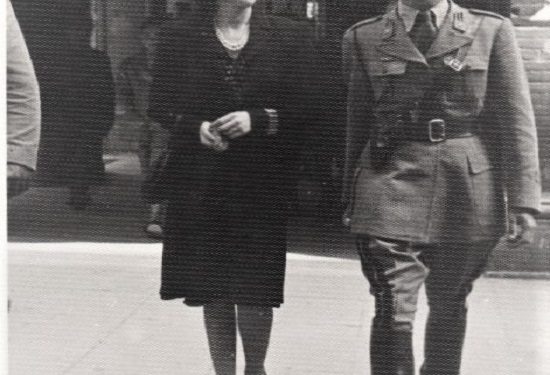
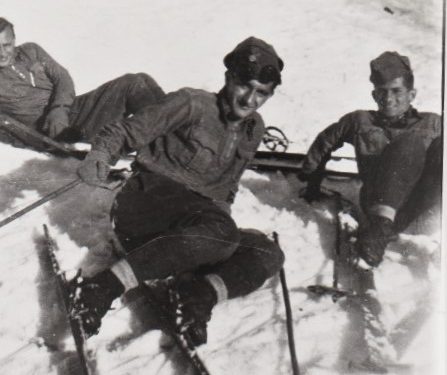
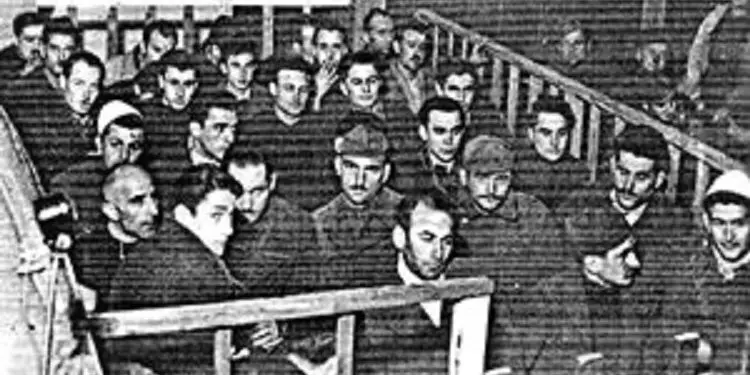
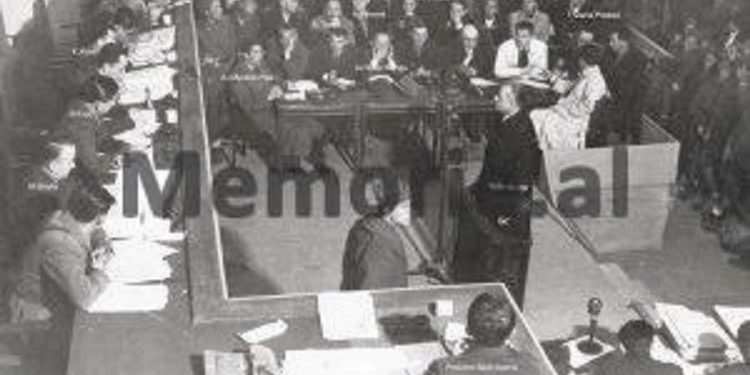
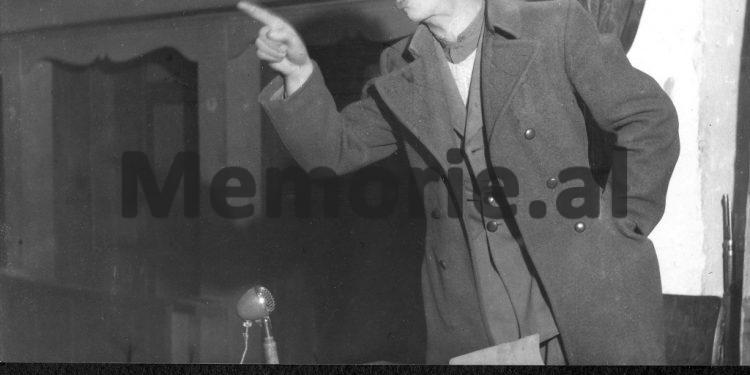
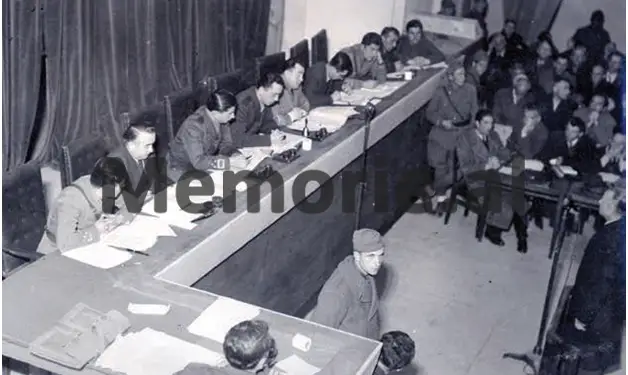



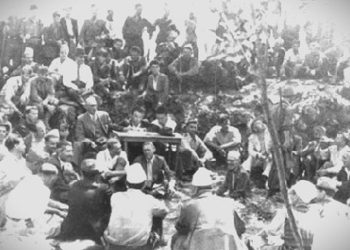
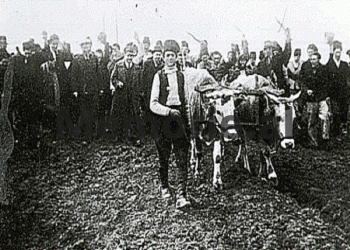
![“They have given her [the permission], but if possible, they should revoke it, as I believe it shouldn’t have been granted. I don’t know what she’s up to now…” / Enver Hoxha’s letter uncovered regarding a martyr’s mother seeking to visit Turkey.](https://memorie.al/wp-content/uploads/2026/01/Dok-1-350x250.jpg)
